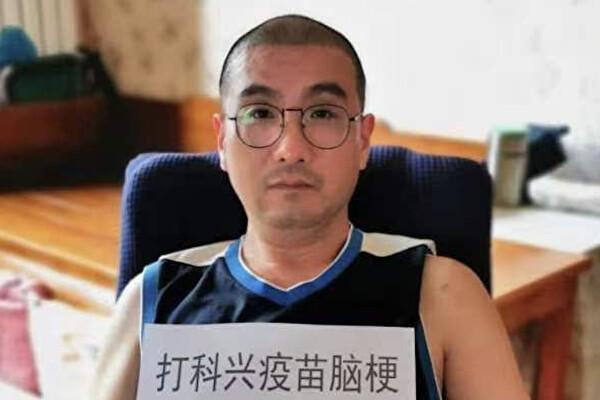Nearly 3.46 billion doses of COVID vaccines have been administered in China as of Dec. 19, 2022, which the authorities claim were all Chinese made. Following the recent surge of COVID-19 infections in China, the effectiveness of and adverse reactions to the vaccines are under a spotlight.
Two people who had adverse reactions told their stories to the Chinese language edition of The Epoch Times on Dec 28. Both developed rare diseases, and claim to have been healthy prior to receiving the vaccines.




